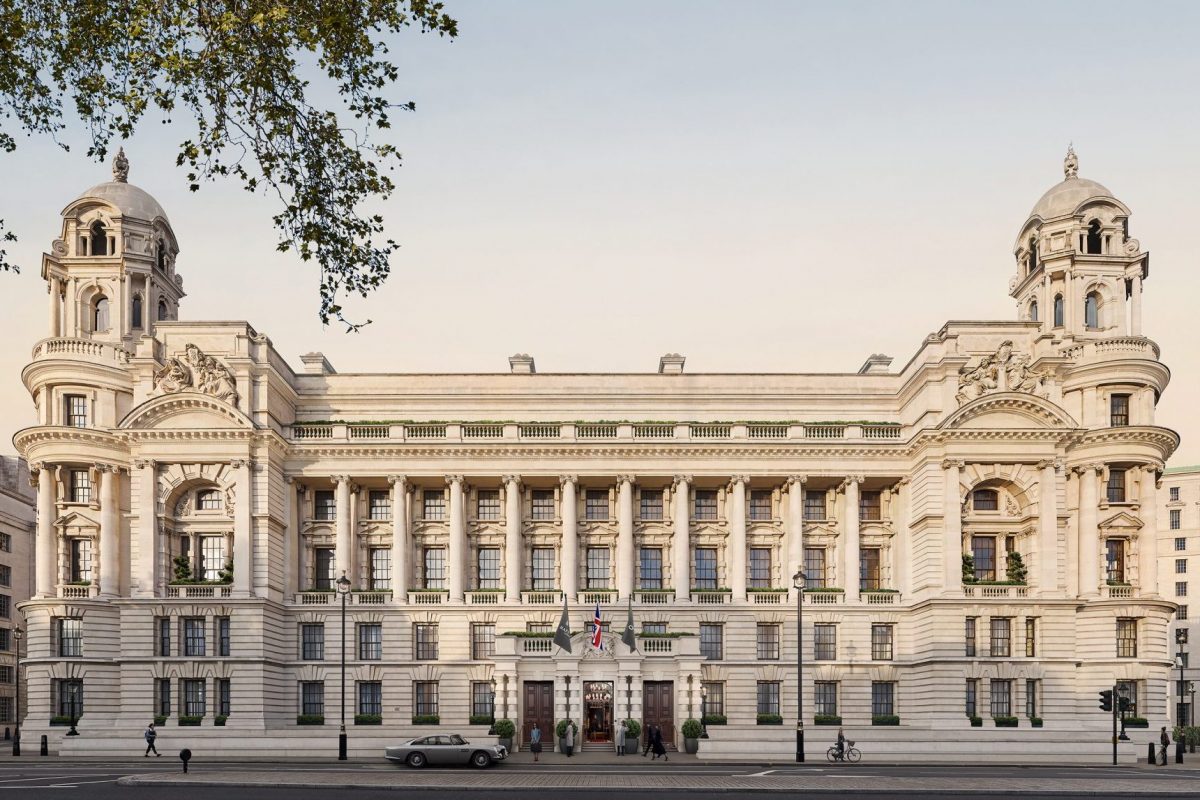Skift Take
It may not have seen the largest profit of major hotel companies last year, but Accor’s swing from a multibillion-dollar loss to a multimillion-dollar profit over the span of 12 months is a major win for a company with significant exposure to Europe and other areas more dependent on international travel.
One of the most financially battered hotel companies from the pandemic made a sharp U-turn to profitability last year.
Accor reported Thursday morning a roughly $95 million profit for all of 2021. While the profitability figure may be less than what was seen by most of Accor’s U.S.-based competitors, it is a seismic improvement over the Paris-based hotel company’s more than $2 billion loss seen in 2020.
Company leaders noted the financial turnaround began last April and that they hope to capitalize on the recovery underway by continuing to expand their focus on higher-performing luxury and lifestyle hotels catering to more local traffic. CEO Sebastien Bazin made it clear the chain isn’t waiting around for a full recovery of business travel, predicting at least a quarter of that business is gone forever.
He noted some systemic changes that are taking place.
“[There is] an enormous change in behavior from guests at Accor … We have to get much better at local stays,” Bazin said during an investor call Tuesday. “There is a clear need for all of us to embark with the local populations and [guests] we have domestically.”
Accor’s biggest vulnerability for much of the pandemic has been its significant exposure to Europe and other areas more dependent on international travel, which was largely curtailed as part of global pandemic mitigation strategy.
Bazin and other Accor leaders early in the pandemic were quick to zero in on lifestyle hotels, or those that make at least half their revenue from food and beverage outlets or other amenities beyond guest rooms. The most notable push into this sector stemmed from Accor’s link-up with Ennismore, owner of brands like Gleneagles and The Hoxton. The deal, resulting in Accor having a two-thirds stake, included spinning off brands like SLS and Delano under the new lifestyle partnership.
While Ennismore currently operates 94 hotels across 14 brands, Bazin said it could swell to “probably over a couple hundred in the next three years.”
There is further financial incentive for Accor to keep pumping resources into its lifestyle hotel portfolio. While Accor’s legacy brands like Sofitel and Novotel might rely more on international business traffic, lifestyle hotels cater more to domestic and local traffic — two demand segments that have been more resilient revenue streams during the pandemic.
Accor’s legacy brands were 27 percent off 2019 performance levels at the end of last year, but Ennismore’s lifestyle hotels were only down by 8 percent — something Bazin attributes to a faster recovery in restaurants and bars than hotel guest rooms.
“The Ennismore lifestyle segment, 55 to 60 percent of total revenue has nothing to do with a shower and a bed. It’s people coming to dine or spend a couple hours and have a coffee or to meet somebody,” he added. “It’s the person who lives next door and comes by foot or bike.”
Accor also sees opportunity in its upscale and luxury brands, as developer interest is up with brands like Fairmont, Mövenpick, and Raffles. The company also relaunched its Orient Express ultra-luxury brand, which also includes a train service slated to begin in 2023.
The luxury and upscale segment — which also includes lifestyle hotels — accounts for 40 percent of Accor’s future hotel openings, up 12 percent over the last four years.
“We’d do absolutely everything for that 40 percent to be closer to 50 percent in the years ahead, which is why we have been assembling the portfolio of brands we have today,” Bazin said.
But he also added a major merger or acquisition isn’t in the cards for Accor to achieve its recovery goals.
“We are not looking at any M&A opportunities,” Bazin said earlier in the call to an analyst. “We haven’t been looking for the last two to three years. It’s not in my list of [top] 10 priorities.”
While the Ennismore deal might seem like a quasi-merger, both parties involved call it a joint venture due to the namesake business retaining a one-third share.
A Demand Shift
Accor still has a ways to go before it sees a full rebound. The company’s overall revenue per available room, the industry’s key performance metric, was down 46 percent from 2019 levels last year.
It is no wonder the company is putting more of an emphasis on luxury and lifestyle hotels that cater more to leisure traffic and local business. While 40 percent of Accor’s demand came from leisure travel historically, another 20 percent came from international business travel — and Bazin expects that sector to still be at half its pre-pandemic performance level this year.
Accor leaders would like to see business travel return, as “those customers end up paying a higher price per room because of their buying power and the people who send them abroad,” Bazin said.
But company leaders recognize they can’t keep waiting on the uncertain revival of this sector.
“I did say publicly that I was afraid that we’re going to be losing probably 20 to 25 percent of that [international business] customer base forever, and people were dubious about it. I keep repeating today that we stand to lose 25 percent of that international business travel forever,” Bazin said. “Unfortunately, it does work to be using tools like Webex and [Microsoft] Teams.”
Have a confidential tip for Skift? Get in touch
Tags: accor, coronavirus, coronavirus recovery, earnings, ennismore, future of lodging
Photo credit: Accor's development pipeline focuses more on high-end hotels (pictured: Raffles London at The OWO). Accor
